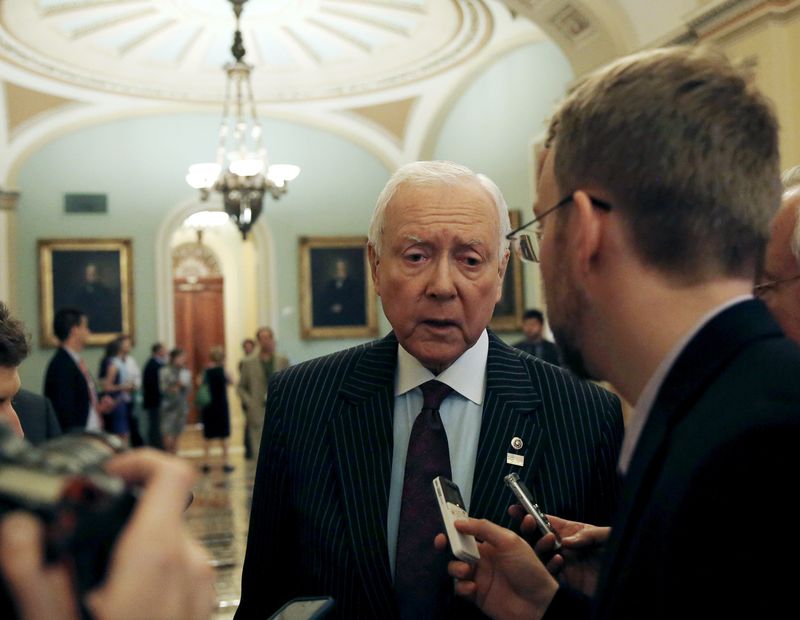WASHINGTON (Reuters) - Senior U.S. senators on Wednesday urged colleagues to support a compromise on boosting rules against currency manipulation in trade legislation key to a Pacific trade pact.
Republican Orrin Hatch and Democrat Ron Wyden, the senior members of the Senate Committee on Finance, offered a joint amendment to legislation creating a fast track for trade deals through Congress. The Senate is expected to vote on the bill this week.
The White House has said U.S. President Barack Obama would veto the bill if lawmakers back a proposed amendment to force sanctions against currency manipulators, which Treasury Secretary Jack Lew said was a poison pill for the 12-nation Trans-Pacific Partnership.
Hatch and Wyden said their approach would strengthen language already in the bill to pressure trading partners to avoid currency manipulation, but not go too far.
"Our amendment, which would provide maximum flexibility, is a better alternative for addressing currency manipulation for a number of reasons," Hatch said.
The amendment sets out a narrow definition of currency manipulation. The senators said it provided no threat to the independence of U.S. Federal Reserve monetary policy or Treasury's ability to set exchange-rate policy, key concerns raised by the administration and some lawmakers.
But the proposal did not convince those who say that rules must have teeth and that countries such as Japan and China have gained trade advantages by keeping their currencies artificially weak and depressing the price of exports.
Democratic Senator Sherrod Brown said the amendment was too weak and its supporters were opposed to the tough laws needed to create a level playing field for U.S. exporters.
"It is a poison pill in reverse," Brown told reporters.
American Automotive Policy Council President Matt Blunt said the amendment was a "rewording" of existing rules and gave officials too many options for how to tackle currency cheats.

AAPC represents companies including Ford Motor Co (N:F) and General Motors Co (N:GM), which are worried about competition from TPP partner Japan and want the country to accept more U.S. cars.